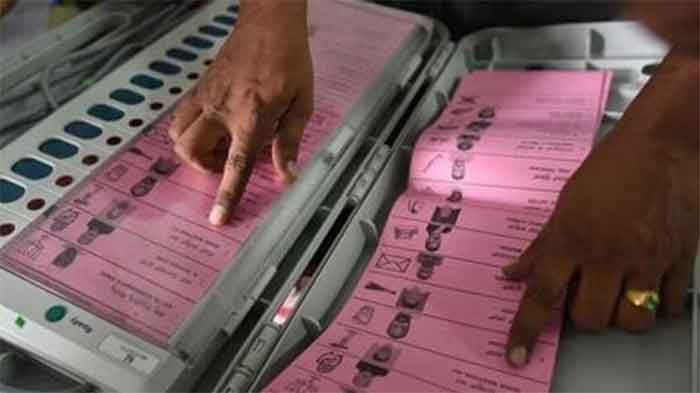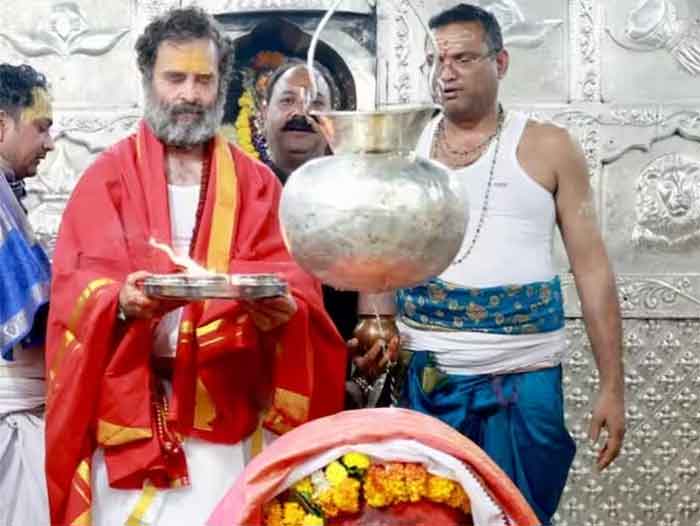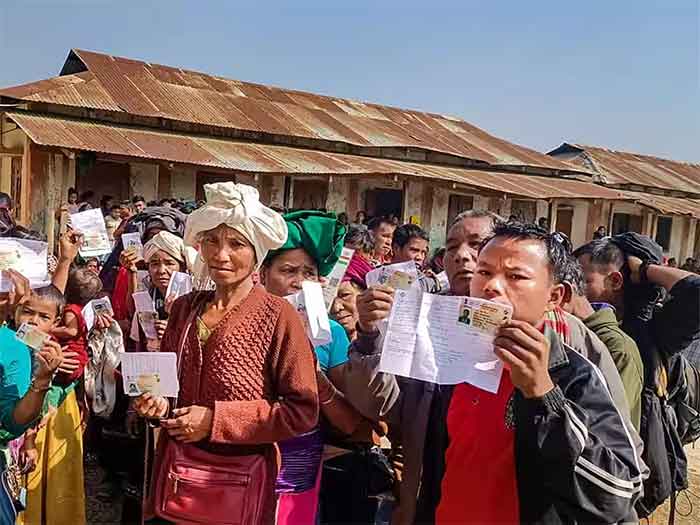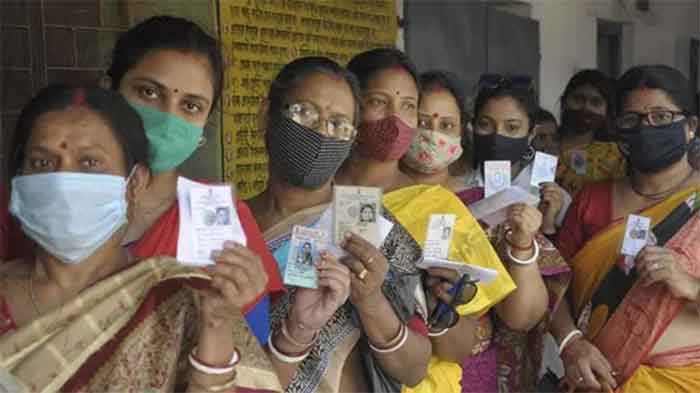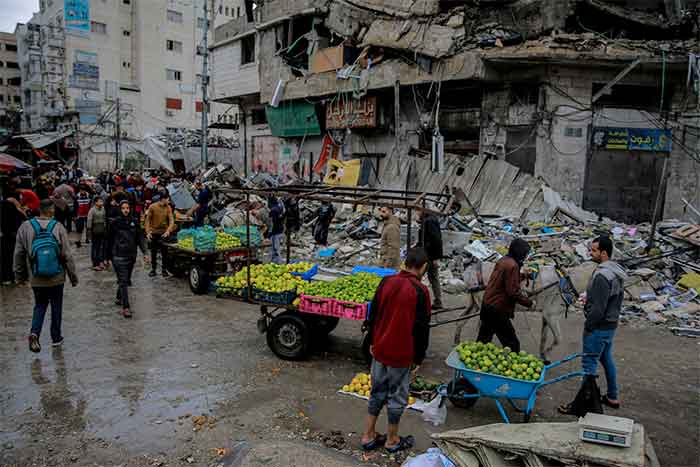
Election campaigns are currently in full swing across five states: Madhya Pradesh, Rajasthan, Chhattisgarh, Telangana, and Mizoram. Various political parties, including the government, opposition, and emerging entities, are vying for power and attempting to engage the public with their populist promises. It’s crucial for the public to make informed choices from these options as new governments will soon take charge for the next five years. Furthermore, Lok Sabha elections are on the horizon, and the future course and direction of our nation will be determined by the government that is elected.
However, a pressing question arises: will this new direction lead to a genuinely different and improved concept of development compared to the one that has been in practice for the past seven decades? This is a serious issue that holds paramount importance, not just for us but also for future generations. Let’s begin by examining two recent headlines. Prime Minister Narendra Modi announced the continuation of a scheme to provide free ration to 80 crore impoverished citizens for the next five years. Simultaneously, Delhi has been declared the most polluted city in the world. Reflecting on the first headline, it’s disheartening to acknowledge that, despite the population being 34 crores at the time of independence 76 years ago, the number of individuals receiving free ration has more than doubled. This situation is a result of various governments, whether it’s the Planning Commission, NITI Aayog, Congress, BJP, Janata Party, UPA, or ADA-led administrations. Sadly, this development has also led to another headline: our capital city is the most polluted globally. It seems as if we’ve deviated from the right path in the name of development and have unknowingly equated destruction with progress.
We can assess this issue from three perspectives: the pre-independence vision of India, the India we were compelled to create, and the present-day reality. It’s evident that we are not steering the nation toward the India that Mahatma Gandhi had envisioned. Gandhi, who dreamed of Hind Swaraj, emphasized that our primary goal was to dismantle the foreign rule. Yet, he acknowledged that the people weren’t ready for Hind Swaraj and opted for Parliamentary Swaraj as a temporary measure. Unfortunately, we seem to have forgotten that Gandhi’s ultimate dream was Hind Swaraj, not merely Parliamentary Swaraj. Today, we are witnessing the expansion of cities at the cost of villages, a development that Gandhi strongly opposed. He believed in the preservation and protection of villages as a core principle.
A pertinent question arises: is Gandhi still relevant today? The answer lies in the fact that Gandhi isn’t merely an individual; his ideology pervaded every nook and corner of the country during the freedom struggle. It has become ingrained in the nation’s soil, air, water, and spirit. Thus, it’s imperative to pause and ponder whether Gandhi’s vision of a village-based economy for nation-building was incorrect, or if Nehru’s model, which emphasized large dams and industries, was right.
To assess this, let’s first revisit the vision of India at the time of independence. Gandhi believed in nurturing a future society based on values like religion, brotherhood, and a sense of family. This approach aimed to build a society where development is rooted in these values, avoiding the need for coercion, terror, or the support of artificial constructs like the state, democracy, elections, and socialism. It was a vision that Gandhi conceived a century ago. He presented two models for societal development: a civilized society comprised of free individuals governed by laws, orders, monarchy, and constitutions, and a family-based society sustained by familial bonds. The latter, according to Gandhi, required fewer formal structures like a constitution.
Jawaharlal Nehru and Mahatma Gandhi held different views on India’s development and economic model. These disparities stemmed from their distinct ideologies and philosophies. Nehru embraced Gandhi’s first model, advocating for systems such as law, state, and elections. He championed industrialization, scientific progress, and technological advancement as key drivers of economic growth. On the other hand, Gandhi favored a decentralized, rural-centric approach to development. He envisioned self-reliant villages governing themselves at the grassroots level, emphasizing labor-intensive, small-scale production and agriculture. This approach aimed to create employment opportunities, particularly in rural areas, to alleviate poverty and promote self-sufficiency.
Nehru’s vision involved rapid urbanization, with a focus on developing major cities and industrial hubs. Gandhi’s model sought to rejuvenate rural India, empowering villages as the backbone of the nation. In light of this, it’s now an opportune time to evaluate the success of Nehru’s economic development model. From the standpoint of economic and infrastructural growth, India has undoubtedly made significant progress. The country’s GDP has soared from Rs 3 lakh crore to Rs 275 lakh crore. The average income of a common citizen has also risen substantially, from Rs 274 per year in 1950-51 to an average of Rs 1.5 lakh per year today. Advancements have been made in education, technology, and healthcare. India has even ventured into space exploration and aspires to set new developmental paradigms.
Nevertheless, it is essential to pause and address a few fundamental questions. First, has poverty been eradicated in the country today? If Nehru’s model of industrialization and urbanization were accurate, we should have witnessed a significant reduction in poverty over the past seven decades. However, the Prime Minister’s recent announcement that 80 crore individuals will receive free ration for the next five years challenges our current concept of development. Second, is corruption eliminated in the country? Unfortunately, it persists and has become deeply ingrained in the system. This pervasive corruption poses a serious threat to the edifice of development in our nation.
The option of Parliamentary Swaraj that Nehru adopted, which mandated the expansion of elections, constitution, monarchy, law, and order, has now significantly gripped our country. As a consequence, the family-based society has disintegrated, and the country remains united only in name. Gandhi emphasized the values of religion, brotherhood, and familial bonds for societal development. However, today, religion has polarized politics and society, contributing little to the promotion of brotherhood and family spirit.
If we desire a nation where morality, integrity, and compassion reign in governance, administration, politics, and society, we must reevaluate our priorities. It’s crucial that we move away from a robotic, mechanized society towards one where people genuinely connect with each other’s joys, sorrows, and pains. At this juncture, both the government and the opposition must transcend the politics of power and contemplate the greater good of the nation. Even if Gandhi’s vision is not the way forward, we must collectively strive to create an environment that upholds the dignity of every underprivileged citizen, rewards hardworking women, provides quality education to our children, and ensures access to clean water, air, and nutritious food. This endeavour could prove to be the most significant contribution to our nation’s development. We now have an opportunity to learn from past mistakes, improve the present, and shape a better future for our country.”
About The Author:
Aman Namra, a seasoned Development Journalist with a remarkable three-decade career, has made significant contributions in the field. As the Incharge and Resident Editor of the prominent National Development Communication Network “Charkha,” headquartered in Delhi, Aman has played a pivotal role in advancing the organization’s mission. Notably, “Charkha” was established by the renowned social worker Sanjoy Ghose, whose life was tragically cut short by Ulfa Extremists.
Aman’s commitment to fostering knowledge and awareness extends beyond the editorial desk. He has conducted approximately 50 media workshops across multiple states, including Madhya Pradesh, Chhattisgarh, Bihar, Jharkhand, Rajasthan, Uttarakhand, Mizoram, and Uttar Pradesh. These workshops have engaged journalists, social activists, and thought leaders, reinforcing the importance of Development Journalism.
Recognized as an authority in the field, Aman has been invited to share his insights on Development Journalism at prestigious institutions such as the Indian Institute of Mass Communication, Lady Irwin College in Delhi, and Makhan Lal National University in Bhopal. His expertise and experiences are highly regarded in academic circles.
Aman’s influence extends to the realm of the written word. He has penned over 100 articles covering a diverse range of topics, which have been published in various newspapers and magazines. His literary accomplishments include the authorship of two books on traditional water harvesting, both published by esteemed institutions, the National Book Trust and the National Foundation of India in Delhi.
Aman’s commitment to knowledge exchange and cross-border understanding is exemplified by his selection as a South Asia Media Exchange Fellow. During his fellowship, he conducted research in Nepal, focusing on traditional water harvesting and natural foresting systems, thereby contributing to regional knowledge and sustainable practices.
Today, Aman continues to shape the media landscape as the Executive Editor of Digital Media at Dainik Bhaskar, headquartered in Bhopal. His extensive experience and unwavering dedication to Development Journalism continue to leave a lasting impact on the industry.

